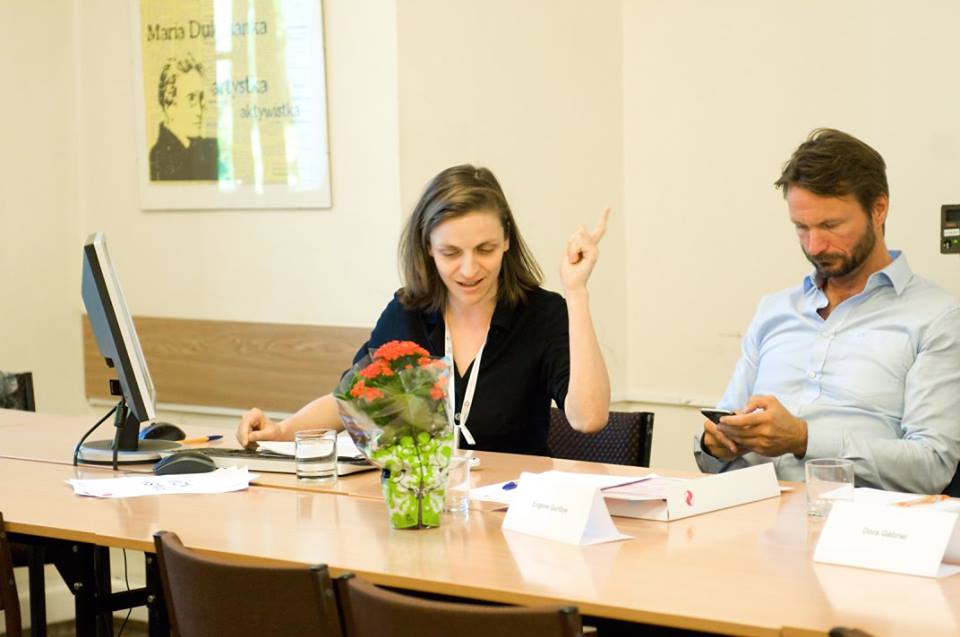Comparing gender attitudes of Polish migrants and non migrants - prezentacja Ewy Krzaklewskiej, Lihong Huang i Pauli Pustułki podczas konferencji projektu TRANSFAM
Ewa Krzaklewska razem z Lihong Huang i Paulą Pustułką zaprezentowały referat pod tytułem "Migrating towards gender equality? Comparing survey data on gender attitudes of Polish migrants and non-migrants" porównujący wyniki projektów GEQ i TRANSFAM.
Prezentację można zobaczyć tutaj.
Informacje o konferencji dostępne są na stronie internetowej projektu TRANSFAM.
Abstrakt
The paper revisits the debate on the relationship between international mobility and progress in the realm of equality between men and women. Engaging with the hypothesis claiming that moving to a more gender-egalitarian country leads to more emancipatory strategies and progressive changes within family/couple dynamics, we examine survey datasets of GEQ a nd Transfam studies. While GEQ - Gender Equality and Quality of Life project featured a representative sample of the Polish population, the Transfam research on "doing family" in the Polish-Norwegian transnationality has collected responses to a web survey from Polish migrant couples and parents in Norway. In this paper, we analyse and compare both gender equality attitudes and family practices of Poles in Poland vis - à vis Poles in Norway. We discuss opinions about the meaning and necessity of equality, as well as determine the actual declared gendered divisions of labour among migrant and non - migrant couples. Ultimately, we identify various factors that facilitate or hinder the shift towards gender equality for Poles, as well as point to the effects of moving from Poland to Norway - arguably "the most gender - equal country in the world".

fot. Dorota Wołujczyk
Data opublikowania:
14.06.2016
Osoba publikująca:
Anna Ratecka


